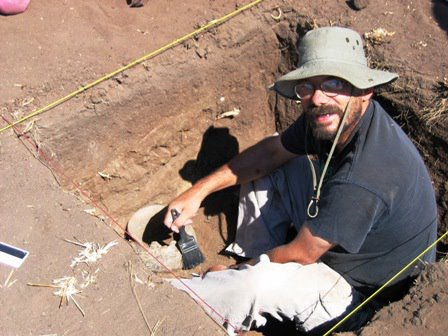Sam Harris debates Rick Warren in the April 9 issue of Newsweek, which can be read here. I think Harris pretty handily wins the debate. While he will not convince the "believer" (nothing of any empirical nature ever would), he sufficiently counters Warren's arguments to the extent that non-believers will have no reason to change their minds and those sitting on the theological fence will have much to ponder. However, perhaps it is more accurate to suggest that Harris doesn't win the argument so much as Warren loses it. The very notion that Harris (and Dawkins, PZ and others) are becoming more open in their challenge to religious presuppositions is a triumph of immeasurable proportions. And Warren and others can't actually get a mental grasp around the idea that their positions rely solely on faith; when they move beyond the realm of an untestable faith and enter the arena of logic, reason and empirical evidence, their staunch defense devolves into meaningless platitudes, false assumptions and fabricated data. They want to justify their faith with empirical evidence, yet in attempting to do so they both fail miserably in the effort and compromise their only argument: faith itself.
Warren notes that one of the greatest evidences of God for him is answered prayer. I hear this a lot from people. Good fortune, near brushes with catastrophe, recovery from serious sickness are all frequently attributed to God's intervention. Harris slays this fantasy with ease that Warren and others are unaccustomed to hearing:
Let me respond to this notion of answered prayer, because this is a classic sampling error, to use a statistical phrase. We know that human beings have a terrible sense of probability. There are many things we believe that confirm our prejudices about the world, and we believe this only by noticing the confirmations, and not keeping track of the disconfirmations.
I have had the same situation in my own family: two tragedies, one in which an individual survived a near-death experience and another in which the individual did not survive. Survival of the first individual is attributed to a miracle and intervention by a loving God among the faithful in my family. The death of the second is attributed to...well, it's just one of those "God works in mysterious ways" sort of things. This has never been a satisfactory answer to me; if the survival of the first is attributable to God, then how does one explain the death of the second? "God works in myserious ways" is an intellectual cop-out - it serves only to rationalize the first within a presumption of the divine while allowing the second to be conveniently dismissed without having to face the implications for God's behavior. Of course Rick Warren has an answer for these sorts of events:
God sometimes says yes, God sometimes says no and God sometimes says wait.
There are other words for Warren's "explanation" of God's behavior that come to mind: randomness, contingency, chance. Everything that Darwin suggested about nature's processes is encapsulated in Warren's words. Once again, simple materialistic explanations have greater explanatory power than omnipotence. If God is really an option for explaining day-to-day events, then I see only three possibilities for adequately explaining my own experiences with human tragedy:
1) God is a sadistic bastard who deserves absolutely no reverence of any sort;
2) God exists, but is no more than a distance observer and does not actively intervene in natural events;
3) God doesn't actually exist;
There is, of course, much more to the Harris/Warren debate. But in the end, Warren can only the claim the usual "rolling of the dice" argument for the existence of God:
When we die, if he's right, I've lost nothing. If I'm right, he's lost everything. I'm not willing to make that gamble.
Actually, I think if Warren is right then God has a hell of a lot of explaining to do....
Subscribe to:
Post Comments (Atom)



No comments:
Post a Comment